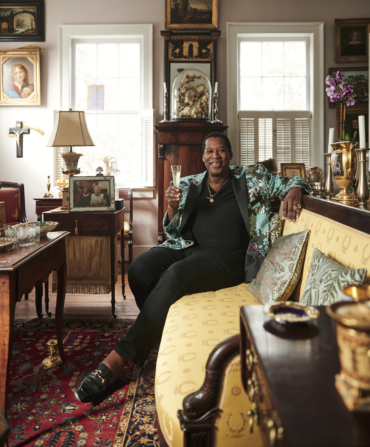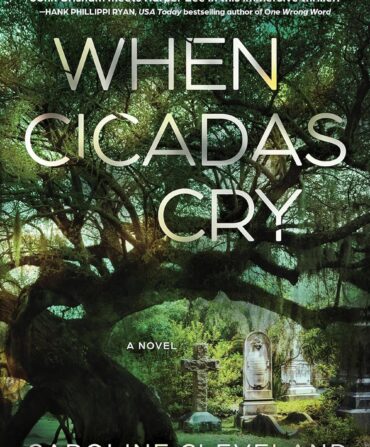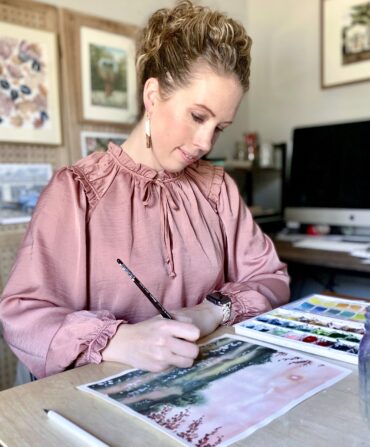Since 2012, Alysia Burton Steele has logged more than 18,000 miles on her odometer, driving through the fields and swamps of the Mississippi Delta to find the Jewels. That’s the name she has given to the fifty grandmothers whose oral histories she recorded and portraits she captured for her book, Delta Jewels: In Search of My Grandmother’s Wisdom.
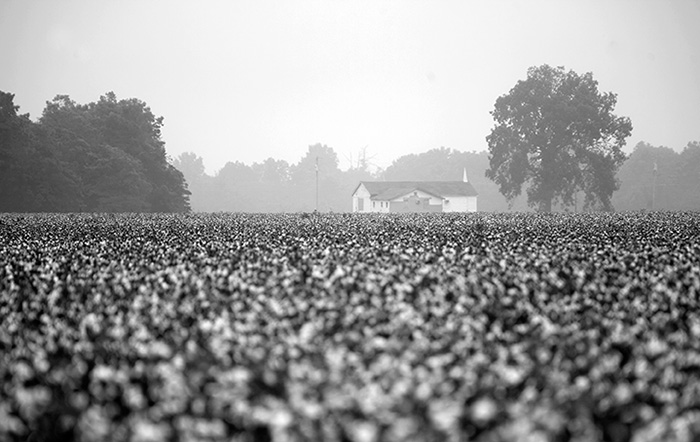
Photo: Alysia Burton Steele
A small Baptist Church surrounded by a cotton field on Route 278.
When Steele was considering a job at the University of Mississippi three years ago, she drove along Interstate 55. Surrounded by cotton fields, she remembered her grandmother who grew up in South Carolina. “I couldn’t pick up the phone to call my grandma,” Steele says. “She was gone. Over time, you tend to forget things. I’m starting to forget what my grandma’s voice sounded like.”
The idea for the project started there. Steele took the job as an assistant professor of journalism and began contacting Mississippi pastors, who put her in touch with church-going community matriarchs whose stories run deep in the Delta.
“This book … is about sitting down and connecting with our elders, and listening to their stories,” Steele says. Here are three things Steele learned—and will never forget—by listening to the Jewels.
1. It all comes back to food.
“I remember—this is funny—my dad was trying to teach me how to make biscuits, and I would forget the ingredients, especially cutting the shortening in there. I would forget to do that, and you would have to eat my biscuits when they were hot. Daddy said if they got cold, they would knock the dog out!”—Ms. Curtistene Short Davis, 67, Leland, Mississippi
Ms. Davis’ mother died when she was seventeen, leaving Davis and her father to take care of the household duties. Cooking was both a struggle and a source of many memories.
“She says in a powerful quote that it wasn’t terrible times, but it was hard times,” Steele says. “It was just a hard life. In many of these stories, there’s a social issue or an economic issue, and there’s always a lesson that starts with food.”
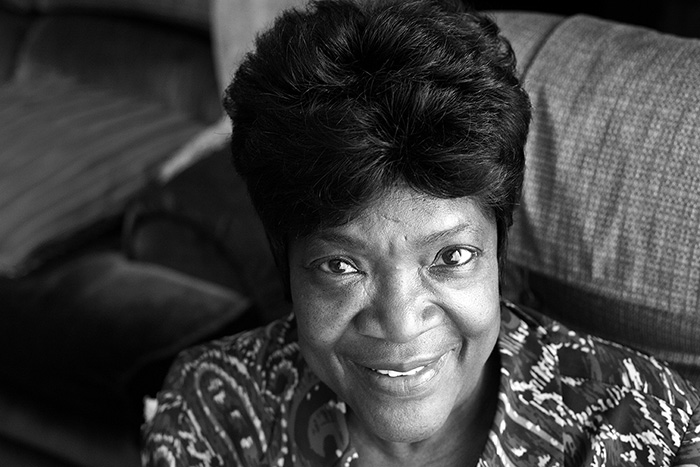
Photo: Alysia Burton Steele
Ms. Curtistene Short Davis.
2. School means success.
“One summer, Jerome and I had to chop cotton, in order for Tracy [her son] to go to Coahoma Junior College. There was one summer, one chemistry course he wanted to take, and I didn’t have the money to pay, so we had to go to the field….He’s now Dr. Tracy Mims.”— Mrs. Herma S. Mims Floyd, 75, Sumner, Mississippi
The topic of education came up frequently.
“It’s a poor region, but there are more doctors, educators, and PhDs in those families than you can believe,” she says. “They would do anything to put their kids through college. They wanted more for their children.”
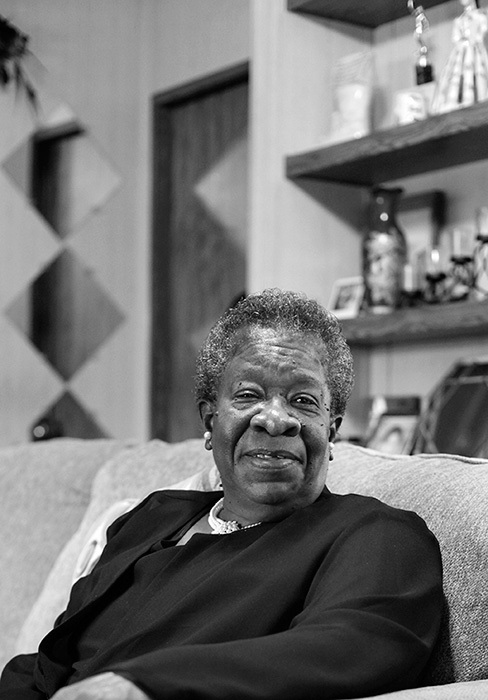
Photo: Alysia Burton Steele
Mrs. Herma S. Mims Floyd.
3. Sit and stay a spell.
“You talk about love? Mine [for her husband] was deep down. I reckon because I loved his style. I loved his style and he was wild about mine.”— Mrs. Velma T. Moore, 79, Benoit, Mississippi
Mrs. Moore was shy and tight-lipped for the first hour Steele interviewed her. That is, until one of her grandchildren (Moore is the matriarch of what Steele calls a “town”—fifteen children, 145 grandchildren, and all the way down to fourteen great-great-great-grands) urged her to admit she scuffled with a woman outside of church.
“She is one spunky, spunky woman who loved her husband,” Steele says. “She pulled a woman out of church and punched her because the woman was flirting with her husband. And she wasn’t going to tell me that story.”
Steele says she heard the most intimate details when she stuck around to sit with a family for longer than an hour. “It pays to go early, it pays to stay longer,” she says. She included many of those extra details each chapter of the book. “When you read the behind-the-scenes of all the narratives, it’s going to make them so much richer.”
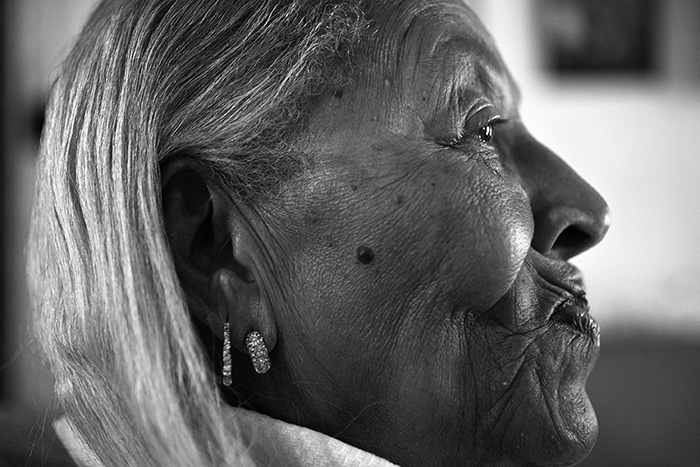
Photo: Alysia Burton Steele
Mrs. Velma T. Moore.


